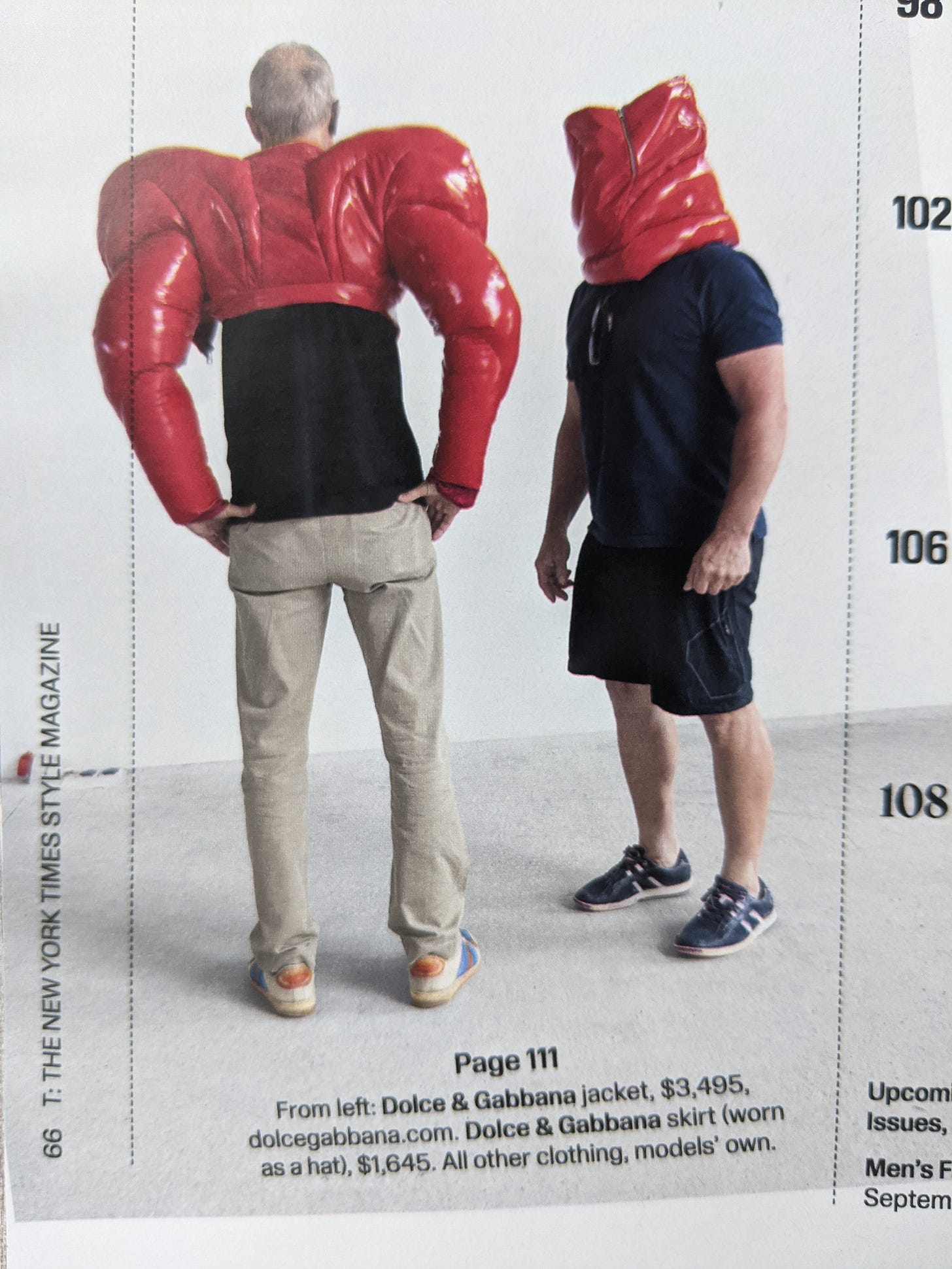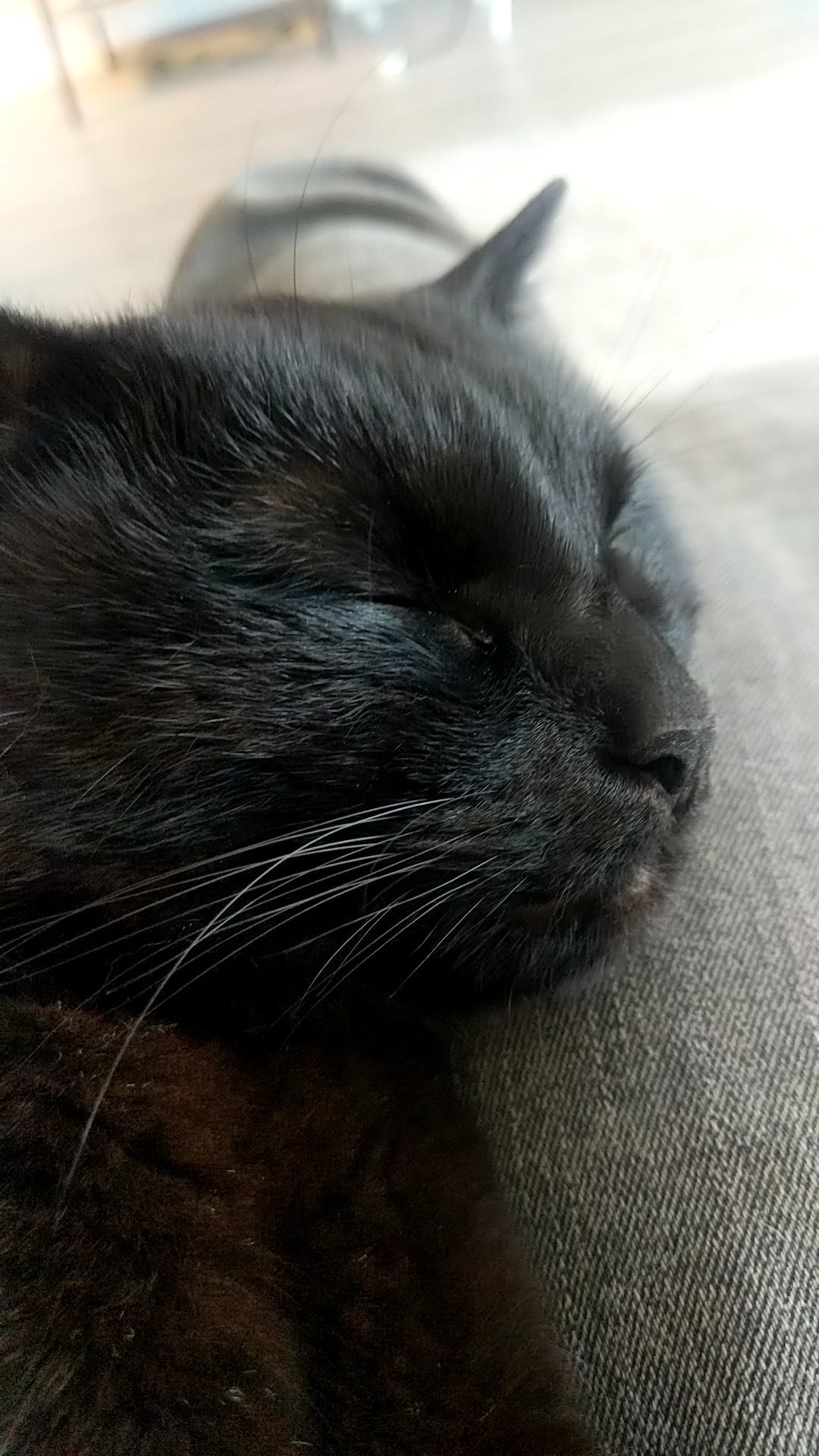As a general rule, I do not converse with foxes. Though our meetings are rare, and brief when they occur, I have never been able to shake the sense that foxes know the jig is up—but they refuse to let us in on it: either the jig itself or that there is a jig at all.
Apparently all foxes are Gaelic, in my telling of the species, and desperate to dance with Lord of the Dance Himself, Michael Flatley, a man for whom the jig is never up, because it’s smeared on his torso instead.

If you haven’t seen Fleabag, Phoebe Waller-Bridge’s two-season TV series based on her one-woman show of the same name, you should stop reading and go watch it. Anything I write from here on out is a spoiler, and everything I write pales in comparison, coats itself in Benjamin Moore’s “Decorator’s White” or “Chalk White;” or, for the truly stumped among us, “White.”
And be prepared: as Fleabag herself warns us in the first episode of season two, “This is a love story.” (I am forever grateful to Lauren Halvorsen, whose love story with Fleabag—and ardent advocacy of Waller-Bridge—brought me to the show.)
Beginning a year after the events of season one, which took us through Fleabag’s grief for her dead mother and dead best friend, season two tells us we’re in a different world. Fleabag’s guinea pig-themed cafe is thriving; there’s even Chatty Wednesdays! She’s running (yes, to her dead mother’s grave, but she’s not talking about that). And although loathsome Godmother is marrying Dad, the priest slated to officiate their wedding is, as Fleabag’s sister Claire reluctantly admits, “quite hot.”
Over the course of six episodes, Fleabag and the Priest fall in love (or do they?), which complicates things. In the finale, they sleep together the night before Godmother’s wedding. “Is it God or me?” Fleabag jokingly asks him at the wedding, and he can’t say, not then.
Last weekend, my boyfriend and I finished rewatching the series. As the credits rolled, we talked about the ending. Fleabag leaves the bus stop, and in turn us, the camera, the fourth wall, with a sad but firm shake of her head, as Alabama Shakes’s “This Feeling” plays: See, I've been having me a real hard time, but it feels so nice to know I'm gonna be alright.
Whether the Priest was genuine when he told Fleabag it was God is something I’m starting to doubt. In my first watch, in 2019, I thought he was; but now, I’m not so sure. Because as The Guardian wrote in its love letter to the end of Fleabag, “Who thought one of the final shots would be of a CGI fox?”
The fox is so obviously fake, jarringly so, Harry Potter and the Sorcerer's Stone-levels of fake. Waller-Pride had Amazon Prime money! Pay up, Jeff Baby! Give the woman her damn fox!
Well, it turns out they did, but Primrose and Buttercup—the foxes hired for the shoot—were terrified and unable to cope. According to Waller-Bridge, the pair had never been in a city; “they'd been brought up and trained in a drama school for foxes!” The solution they arrived on was a cry for help:
The only way to calm them down was to play Coldplay, so the handlers brought out a little CD player, and they were like 'Everyone needs to be quiet now, Buttercup particularly likes this track.' It was either 'Yellow' or 'Fix You', I think we got a shot of a snout and tail somewhere.
Unlike his relationship with Fleabag or God, The Priest is firm in his belief about foxes. “Foxes have been after me for years,” he tells Fleabag, after jumping at the sight of what he thinks is a fox. (It’s past 9:30—his bedtime of late—and they’re sipping canned gin & tonics in a church garden.) “It’s like they have a pact or something.”
Writing in Vulture, Ellen O’Connell Whittet explored the varied potential meanings—interpretations, more accurately—of what The Fox, and foxes more generally, represent in the Priest’s life. Disappointed in the unromantic ending (The Priest walks away, Fleabag heads home), Whittet asked her father, a Catholic and a retired English professor, for his take on if The Priest and Fleabag would, one day, reunite.
“Of course they end up together,” he said to me the morning after he finished the final episode. “The fox chases the Priest down the street.” My father’s conclusion struck me like a revelation because he saw what I wanted to see: The fox represented something crucial about the relationship the Priest has with his celibacy.
The Priest leaves the bus stop, and we stay for Fleabag for a moment of silence. (A nice harkening back to the show’s pitch-perfect representation of what people say in Quaker meetings: “I think…I think I’ll go home in November. I think.”) Then the fox arrives. He gives Fleabag a look, and she shakes her head, pointing in the direction that Priest took. “He went that way.”
If the Priest had stayed with Fleabag to explain any of his decisions—if, instead of taking her “It’s God, isn’t it?” as the easy way out of a much longer answer—the fox might have arrived on time. And what would that have done, meant?
Armed with her father’s steadfast answer, Whittet makes a compelling case for the fox as “the symbol of sexual desire,” a potential reason for why the Priest became a priest in the first place. “Love is running after him, too,” she writes. “We can’t know whether it catches him, of course, but foxes haven’t left the Priest alone since he first chose God.”
Fleabag is a love story, the best kind of one, because it doesn't end happily but it does end with hope: maybe, these people will learn how to be good to each other; Fleabag, most of all to herself.
From Claire, her sister: “The only person I’d run across an airport for is you.” (After Fleabag tells her to run after Klair—yes—in an airport before he flies away to the Netherlands.) The headless, bronzed statue of a woman, which threads through both seasons and ends up in its rightful place: Fleabag’s hands. And, yes, the Priest, but also God, and the kind of love beyond what you can see but that still remains tangible despite not being tactile.
Recently, I told somebody that I’m the friend that people come to talk about God with—a stand-in, I think, or perhaps a short-hand, for questions about meaning, and particularly whether it can exist in the face of what humans do to each other.
It is perhaps obvious why I am not the friend that people take with them to the club: the club, as if it were The Club, and I am an anthropologist looking for her big break. And after that sentence, it is now definitely obvious why I am not that friend.
Maybe I’ve been thinking about what God means to me because of how meaningless things feel right now—not because nothing is important, but because everything is, and I struggle to find my way through that noise and make sense of where I should be, who I should be. As Fleabag tells the Priest:
I want someone to tell me what to believe in. Who to vote for and who to love and how to...tell them. I just think I want someone to tell me how to live my life, Father, because so far, I think I’ve been getting it wrong. And I know that’s why people want someone like you in their lives, because you just tell them how to do it.
If only.
Wondering about what something means, or says, both in a work of art and in a life: that ought to be worth our attention, even if it eludes a neat resolution. I say ought to, because my attention so often runs away from me. (It must buy the new shade of Benjamin Moore’s white: “White: I’m Sorry.”)
I’ve been scrolling through reddit threads from Fleabag fans, reading articles and theories, stumbling across what people believe—and it’s overwhelming, and I’m completely unable to look away. So many people: believing! In public!
So yes, the Priest doesn’t know what the fox means, but those of us who watched Fleabag do, or so we think, and so we’ll tell you all about it, because we want you to know that we’ve cracked it, we know what the jig is, and this time? This time, it really is up.
What’s your small good thing of the week?
Let Me Tell You About Gidget
In this week’s episode of Tainted Love: the Sarah and Gidget Story, Gidget joined me for a webinar, then demonstrated what I am sorely lacking: sleep.
A Continual Note of Gratitude
Like everything I write these days, this was written during sessions of The Writers’ Hour, an online hourly Zoom writing session hosted by the London Writer’s Salon. LWS is an online writing community so lovely and supportive that reminds me why I love writing in the first place.






I really need to watch Fleabag again. (Also struggling with the noise and where and who I should be. But then I feel like I always am, sometimes I just notice it less.)